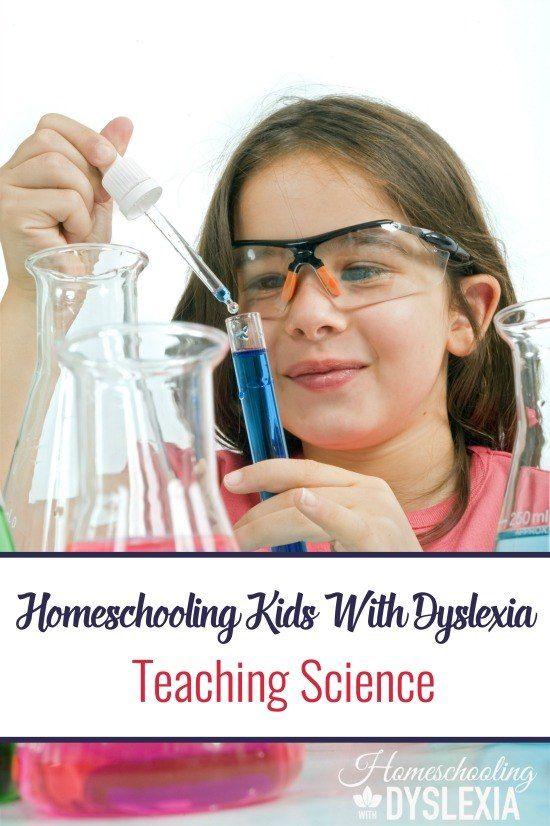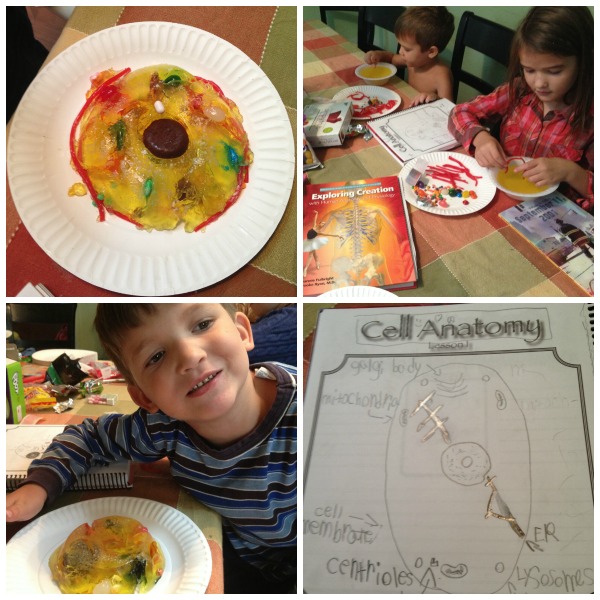Are you wondering how to teach science to your dyslexic student? I am sharing how we teach Science to our homeschooled kids with dyslexia. Practical tips that can help you teach science for any grade in your homeschool.

Thank you for joining us for day 3 of a 5-day series on how we teach various subject to our dyslexic learners. So far we have covered:
Homeschooling With Dyslexia: How We Teach Science
Let me just start by saying that science has always been a fun subject for us. From making slime in the early grades to building models in the older grades, science lends itself easily to the hands on learning that right brained thinkers love.
In the early years of our homeschool, we had no science curriculum. Planting a garden, caring for pets, nature walks and journals were the main lessons for our studies. We watched a lot of nature videos. When our oldest took and passed the high school exit exam in 10th grade, I asked him how the science seemed to him since we hadn’t done much formal science besides his year of Physical Science in 9th grade and a year of Biology in 10th grade. He said that a lot of the basic facts he had learned from the videos we had watched including, dare I say it, his years of watching the Magic School Bus on DVD. Just keeping it real here.
In the past few years, we have taken a more intentional approach to teaching science in the younger years with the Exploring Creation series published by Apologia. These books use the Charlotte Mason approach and work beautifully with our kids’ learning styles.
Science Resources Through the Years
The younger years should focus on hand on, interest-led learning. We have planted gardens, hatched butterflies, observed our cats having kittens, watched birds and combed beaches.

Switched on Schoolhouse (SOS) Sciences. As our kids grew and improved in their reading skills, we spent a few years with SOS.
Benefits of this program are:
- completely computerized and leaves very little planning for mom.
- SOS text can be highlighted and read aloud to the student which is great for the auditory learner.
Downsides of this program are:
- computer ‘voice’ is not a natural voice but computerized. Not a problem for all kids though.
- this is a traditional text book approach. Can be dry and a bit boring!
Other science programs that we like:
- TOP Science: Tons of hands on science activities for all ages.
- Real Science 4 Kids: Offers grade-level kits as well as unit study materials for a wide range of subjects geared for the middle school crowd.






Thank you, thank you!
I often feel guilty that we don’t really “do” science: getting through reading, writing, and math in a day is my goal. I let my kids take turns watching Octonauts or Magic School Bus while I work with one child on math. They learn so much, and honestly, I hate to miss out because I learn just by overhearing these shows while I cook dinner! Visual learning is so crucial for students with learning challenges. I will move forward this year embracing our “visual science” curriculum! Of all the “starting school” posts, this one stands out as a game changer for me.
Don’t forget Mystery Science! It’s amazing for my dyslexic kids. They love it and learn so much. Incredibly interesting and engaging.
My son just was diagnosed with Dyslexia, he is in the 5th grade. Do you order curriculum for his current grade or his reading level? He is independently reading at a 3rd grade level, but his cognitive/comprehension when read to is at or above level? I am going to home school next year and don’t know which to purchase. The language arts, writing, and reading will be our main focus and struggle. But he LOVES the other subjects so much. Thank you for your help.
Hi Ann,
You’ll want to teach reading at whatever level he is reading at. Reading programs that are designed for dyslexia aren’t grade leveled. You choose whatever level they are currently reading at. As for literature and other subjects, you’ll definitely want to purchase a program at his grade level. He may need accommodations such as using audiobooks and narration for this if he can’t yet read them or write his answers.
Hope this helps!
I took a peek at the Apologia Exploring Creation series. I love the Charlotte Mason approach, but I wondered how you feel this is helpful for the visual/spacial learner and dyslexic child? Do you read the lessons to your child? That’s enough for them to connect the dots?
I do read to them and have them tell back (narrate) what they learned. Very simple. I don’t stress about getting all the way through the curriculum any more but pick and choose what I want to cover.
Can you share more about how you used the Apologia series with your dyslexic children? Looking at Apologia for my 9th grader. We’ve done a lot less formal science in the past like you and they’ve all learned a lot that way. Did you use the test book or any of the other materials? I see that many of their textbooks are available on audio via Learning Ally as well. Thanks!
I have a son (diagnosed with dyslexia) who is entering 9th grade. I’m looking for a grade appropriate earth or physical science for him that will be friendly to his learning style. We have never done any real science up until now. What would you suggest?
I have graduated my 3 children from home school and the youngest was severely dyslexic. I am a high school teacher with Orton Gillingham specialist training. My own dyslexic son struggled with the huge amount of reading and apologetics in Apologia. I am now a tutor and find many of my students also struggle for the same reason. I highly recommend friendly chemistry and biology. It’s mostly ‘just science’, rather than lots of reading. I do a lot of hands on experiments to go alongside the book work, but for a high school credit, you can’t really skip parts.
Do you have recommendations for high school science? My dyslexic kid also has a terrible working memory and the huge amount of vocab is the worst for him. We used BJU and Apologia science in middle school.
This resource has some good recommendations:
https://homeschoolingwithdyslexia.com/wp-content/uploads/Comprehensive-Curriculum-Guide.pdf